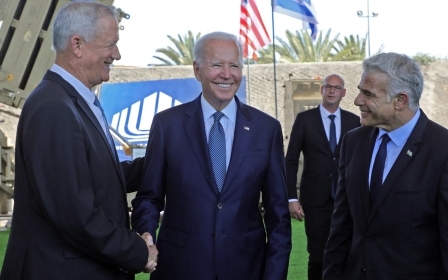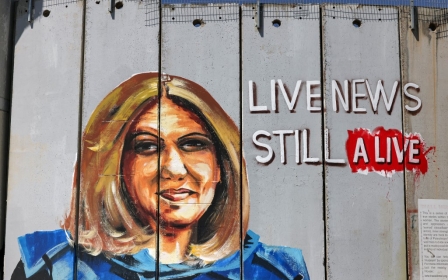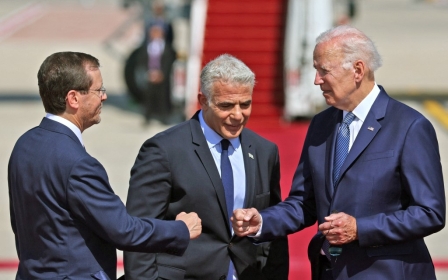Biden says he is willing to kill Iran nuclear deal to keep IRGC on terror listing
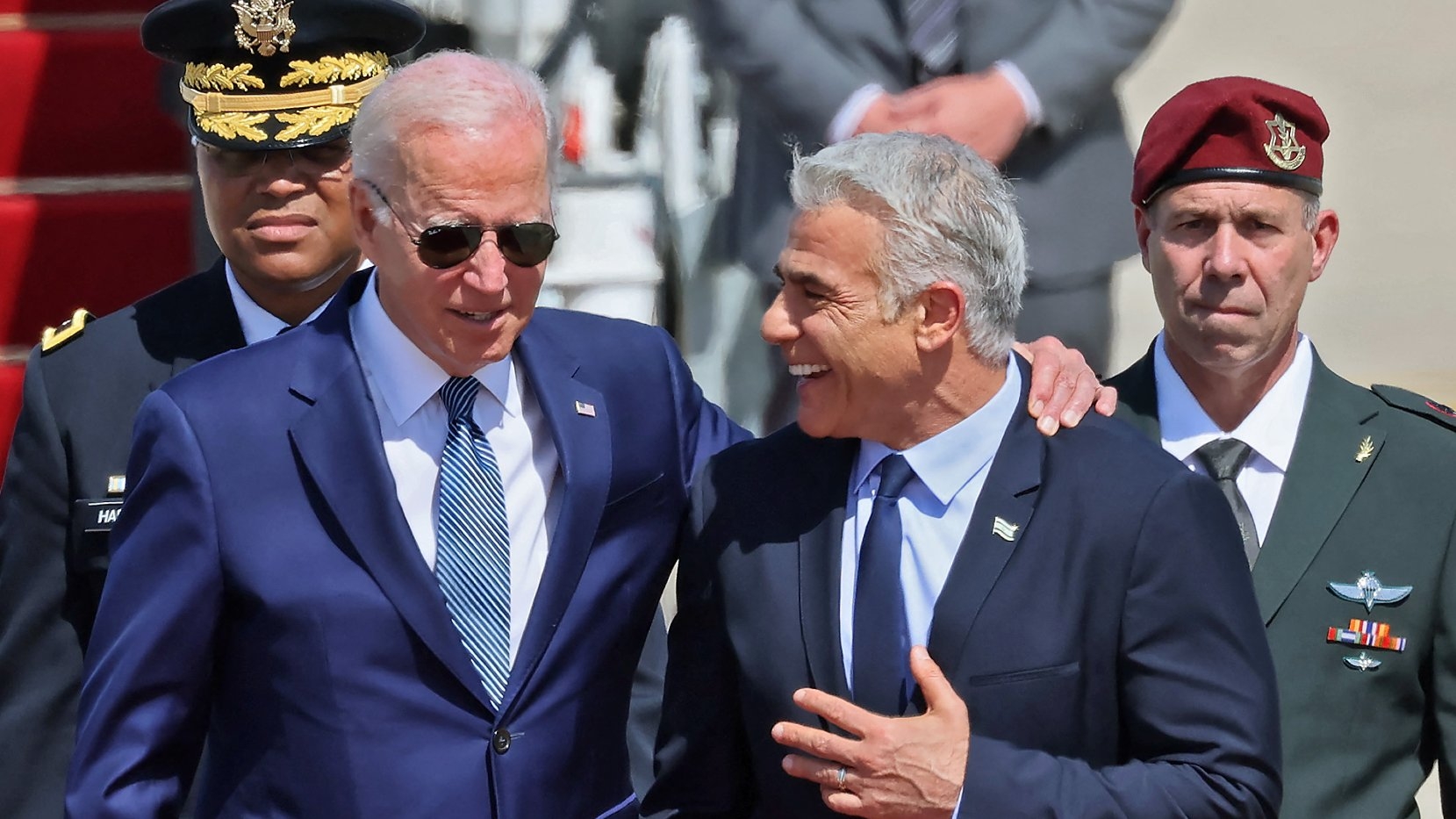
US President Joe Biden has said that he is willing to let the nuclear deal with Iran die in order to keep Tehran's Islamic Revolutionary Guards Corps (IRGC) on Washington's list of foreign terror groups.
In an interview with Israel’s Channel 12, which aired on Wednesday as he kicked off his visit to the Middle East, Biden was asked if he was "committed to keep the IRGC on the 'foreign terrorist organisation' list, even if that means that it kills the deal".
Without hesitation, the president responded: "Yes."
During the interview, Biden added the US would do anything to ensure Iran did not obtain a nuclear weapon and would use military force, "if it's the last resort". Tehran denies seeking nuclear weapons.
New MEE newsletter: Jerusalem Dispatch
Sign up to get the latest insights and analysis on Israel-Palestine, alongside Turkey Unpacked and other MEE newsletters
For months, the Biden administration has maintained it has no plans to remove the listing of the IRGC - a move former President Donald Trump made in 2019 - despite it having been one of the last sticking points in the stalled negotiations to return to the landmark 2015 nuclear deal.
US Secretary of State Antony Blinken told lawmakers in April that blacklisting the IRGC had a minimal impact on the organisation. "As a practical matter, the designation does not really gain you much because there are myriad other sanctions on the IRGC," Blinken said.
In May, Biden told then-Israeli Prime Minister Naftali Bennett that he was planning to keep the IRGC on the terror list, and that the decision was final.
The comments from Biden come amid his visit to Israel and Saudi Arabia, where the US is looking to bolster security and defence ties in the region.
Saudi Arabia and the United Arab Emirates have been asking the US for a security pact that would bolster their defences against Iran, and Axios reported in early June that the Biden administration was working on a draft agreement.
The increase in security ties comes while talks falter with Iran over reviving the nuclear agreement, known formally as the Joint Comprehensive Plan of Action, which Trump unilaterally left in 2018.
Last month, Qatar hosted a round of talks in an attempt to spark life into the negotiations, but both sides left Doha with little progress.
Biden claims Israeli integration better for Palestinians
During his interview with Channel 12, Biden also stated he supported Israel's increased integration into the region because it would create a better situation for Palestinians. Meanwhile, as Biden touched down in Israel, the Israeli army began confiscating more than 365 acres of lands belonging to Palestinians in the north of the occupied West Bank.
"The more Israel is integrated into the region as an equal and accepted, the more likely there will be a means they can come to an accomodation with the Palestinians down the road," he said.
Since Israel first normalised relations with several Arab countries in 2020 - under deals brokered by the Trump administration - Palestinians have continued to face repression at the hands of Israeli authorities, and some analysts say that further normalisation will only cause such repression to rise.
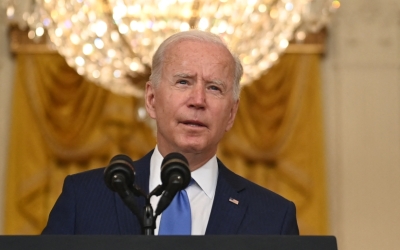
This came to global attention in May, when Israeli forces shot and killed Palestinian-American journalist Shireen Abu Akleh. However, the US concluded earlier this month that while the bullet that killed Abu Akleh likely came from the positions of Israeli forces, the killing was an accident - sparking outrage from Palestinians as well as international rights groups.
"What it means for the Palestinian public is increased repression, because these agreements have a component that deals with repressive technologies and the development of these technologies," Dana el-Kurd, an assistant professor at the University of Richmond, said during a webinar hosted by the Foundation for Middle East Peace earlier this week.
Some experts, including Kurd, also have noted that future normalisation between additional Arab countries and Israel could lead to a narrowing of public space in the former, with governments cracking down on their own populations.
Kurd said public polling shows that most Arab citizens are highly opposed to the normalisation of relations with Israel.
"So when the state goes ahead and pursues these normalisation deals at odds with societal sentiment, there is often opposition and dissent which is then cracked down on," she said.
Middle East Eye delivers independent and unrivalled coverage and analysis of the Middle East, North Africa and beyond. To learn more about republishing this content and the associated fees, please fill out this form. More about MEE can be found here.


